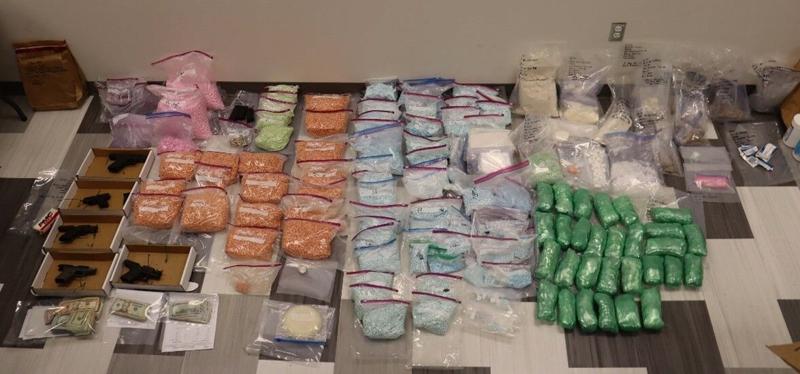(The Center Square) – Three Republican presidential candidates, throughout four televised debates and dozens of campaign stops, have promised to use the U.S. military to address the fentanyl crisis, offering up tough talk that experts have said would be difficult, or in some cases, impossible to put into practice.
Former U.N. Ambassador Nikki Haley, Florida Gov. Ron DeSantis and entrepreneur Vivek Ramaswamy have all said they would use the nation’s military might to quash cartels in Mexico. They have also put China, the source of much of the chemical precursors used to make fentanyl, on notice.
In response to questions during Wednesday’s debate, DeSantis again made it clear that he thinks military options would make for realistic solutions to fentanyl manufacturing and smuggling in Mexico.
“The drug cartels are invading our country and they are killing our citizens by the tens of thousands every year,” the former military attorney said. “The Commander in Chief not only has a right, you have a responsibility to fight back against these people.”
DeSantis said he would classify drug cartels as foreign terrorist organizations. Haley and Ramaswamy have made similar comments. In May, Ramaswamy said not only would he use the military to secure the U.S.-Mexico border, but would be “ready to use our military to annihilate the Mexican drug cartels south of our own border.” In the October debate, Haley said she would “send in our special operations and we will take out the cartels.”
Former New Jersey Governor Chris Christie in an August appearance on CBS News’ “Face The Nation” said Mexico would see that as an act of war.
“I think the invasion of Mexico issue is one that sounds good on the debate stage, but I think if any of them tried to implement that part of it, as president, they would find it’s much more complicated than they’re making it sound.”
Mexico, a sovereign nation that is the United State’s second-largest trade partner, has largely dismissed such talk from presidential hopefuls. Mexican President Andrés Manuel López Obrador has called them clowns.
“They talk without substantiation because they think that this way they will gain sympathy, they compete among themselves to see who says the most extravagant nonsense about migration, fentanyl and about Mexico, but they should not be taken seriously,” López Obrador said earlier this year.
Policy experts have not only questioned the legitimacy of using the U.S. military in Mexico, but also questioned its effectiveness as a drug reduction strategy. Tony Payan, director of the Center for the United States and Mexico at Rice University’s Baker Institute for Public Policy, said Republican candidates, U.S. residents and others have legitimate concerns about Mexican fentanyl.
“Obviously 110,000 Americans are dying of overdoses every year and fentanyl is coming mostly from Mexico, like other drugs,” Payan told The Center Square.
U.S. officials reported 107,735 overdose deaths between August 2021 and August 2022 from drug poisonings, according to the U.S. Centers for Disease Control and Prevention. About 66% of those deaths involved synthetic opioids such as fentanyl.
Payan said López Obrador has “dragged his feet on both acknowledging the concerns of American leadership and refused to confront organized crime in Mexico.” Even so, Payan called the Republican proposals “extreme” and “absurd.”
Payan, who is also a professor of social sciences at the Universidad Autónoma de Ciudad Juárez in Ciudad Juárez, said past American military work to eradicate drugs in other countries has not been successful.
“We know for sure that whenever the United States has intervened for such purposes – you know, going into a country to fight terrorism or drug trafficking as in Colombia and places like that, they’ve never really managed to make a dent on drug trafficking,” he said.
“On the contrary, this is a permanent problem. It seems that there is no solution to it,” he said. “So I think it’s absurd of Republicans especially to be proposing that sending special troops or even undercover operations into Mexico is a solution. Of course, the U.S. needs to get Mexico to both acknowledge that this is a problem for which both are co-responsible, but also create a framework to deal with organized crime in Mexico. And especially organized crime that affects the United States such as human trafficking, fentanyl smuggling and things like that. But honestly, a militarized response or even an undercover response would only make things worse.”







